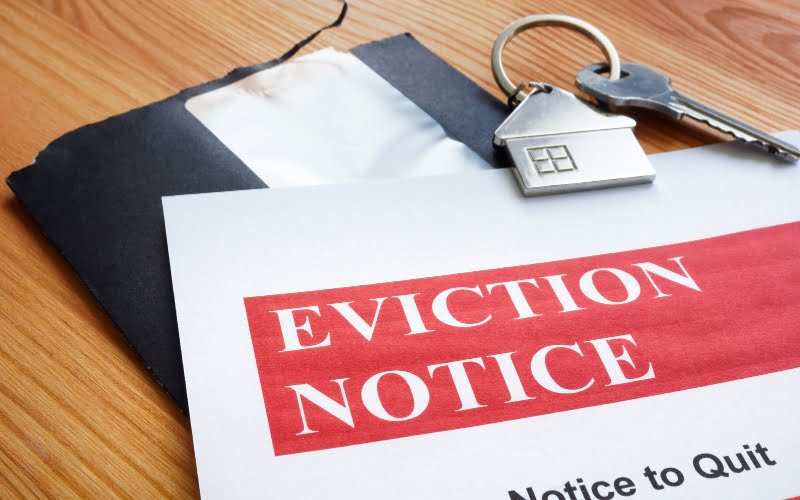Last Updated on March 18, 2024 by Kelvin Nielsen
If you’re a landlord in Delaware who needs to evict a commercial tenant, it’s important to understand the legal process and your rights as a property owner. The eviction process can be complicated, but with the right knowledge, you can navigate it successfully.

First, it’s important to understand the Delaware eviction process. As a landlord, you must follow specific rules and procedures during the entire eviction process. You must win an eviction lawsuit (also called an action for summary possession) against the tenant in court.
The court will serve the tenant with a summons and complaint, and a hearing will be held. If you win the case, a writ of possession will be issued, and the constable will return possession of the property to you.
However, tenants may have defenses against eviction. Common defenses include improper notice, retaliation, and discrimination. It’s important to understand these defenses and how to respond to them. With the right preparation, you can successfully evict a commercial tenant in Delaware and protect your property rights.
Key Takeaways
- Understand the Delaware eviction process and follow specific rules and procedures.
- Tenants may have defenses against eviction, including improper notice, retaliation, and discrimination.
- With the right preparation, you can successfully evict a commercial tenant in Delaware and protect your property rights.
Related Posts:
Understanding the Delaware Eviction Process
If you are a commercial landlord in Delaware and need to evict a tenant, you must follow the proper legal process. The following subsections describe the steps you must take to evict a tenant from your rental unit.
Issuing the Eviction Notice
Before you can begin the eviction process, you must give the tenant written notice. If the tenant has failed to pay rent, you must provide a Five-Day Notice to Pay Rent. If the tenant has violated the lease agreement, you must provide a Seven-Day Notice to Remedy.
If the tenant has not remedied the violation, you can then provide a Seven-Day Unconditional Quit Notice. The notice must inform the tenant of the reason for the notice and the date by which they must comply.
Filing the Complaint and Summons
If the tenant fails to comply with the notice, you can file a complaint with the Justice of the Peace Court. You must pay a filing fee and provide a copy of the notice and lease agreement.
The court will then serve the tenant with a summons and complaint, which will inform the tenant of the date and time of the court hearing.
Court Proceedings and Judgments
At the court hearing, both parties will have the opportunity to present their case. If the tenant does not appear, you may be granted a default judgment. If the court finds in your favor, it will issue a judgment and a writ of possession.
The writ of possession allows the sheriff to remove the tenant from the rental unit. The tenant may appeal the judgment within 10 days.
Related Posts:
- How Long Does It Take to Evict a Tenant in Delaware?
- How to Evict a Roommate in Delaware: A Step-by-Step Guide
- How to Evict a Family Member in Delaware: A Step-by-Step Guide
Legalities and Tenant Defenses
If you want to evict a commercial tenant in Delaware, you must follow the legal process and respect tenant rights. Illegal evictions can lead to severe consequences, including misdemeanor or felony charges.
Therefore, it is crucial to understand the enforcement and consequences of the eviction process.
Illegal Evictions and Tenant Rights
Delaware law prohibits landlords from taking any actions that could be considered an illegal eviction. This includes shutting off utilities, changing locks, removing personal property, or physically removing the tenant from the premises.
If you violate these laws, the tenant can file a counterclaim against you and seek damages. As a landlord, you must provide a written notice of the eviction lawsuit to the tenant and follow the legal process.
Enforcement and Consequences
The Delaware Consumer Protection Unit and Attorney General’s Office enforce the state’s landlord-tenant laws. Law enforcement officers, such as constables and sheriffs, can forcibly evict tenants who refuse to leave after a court order.
If you violate the law, you can face misdemeanor or felony charges, depending on the severity of the offense. Therefore, it is essential to seek legal advice and representation before attempting to evict a commercial tenant.
Professional Assistance
If you need help with the eviction process, you can consult with an attorney who specializes in landlord-tenant law. An attorney can provide legal advice, representation, and help you avoid legal pitfalls. Additionally, you can contact the Delaware State Bar Association’s Lawyer Referral Service for a list of attorneys who can assist you with your case.
Related Posts:
- Is Delaware a Landlord-Friendly State?
- Can You Withhold Rent in Delaware? A Guide to Tenant Rights
- Can You Break Your Lease Early in Delaware? A Guide to Lease Termination
- Can a Landlord Break a Lease in Delaware?
Disclosure: The content herein isn’t a substitute for advice from a professional attorney. It’s only meant to serve educational purposes. If you have a specific question, kindly seek expert attorney services.
Sources: Residential Landlord-Tenant Code, A SUMMARY OF THE DELAWARE RESIDENTIAL LANDLORD-TENANT CODE, What Rights Do Tenants Have in Delaware? A Comprehensive Guide

Amanda Rose is a seasoned landlord with 13+ years of expertise in overseeing diverse properties. Her adept management spans single and family homes, along with multi-family apartments and condos, across Wyoming and South Dakota. Her commitment and proficiency have cemented her status as a thriving property management professional.
She is a member of the following organizations: Wyoming Landlord’s Association, National Association of Residential Property Managers (NARPM), Wyoming Apartment Association, South Dakota Multi-Housing Association (SDMHA), and South Dakota Landlord Association (SDLA).







